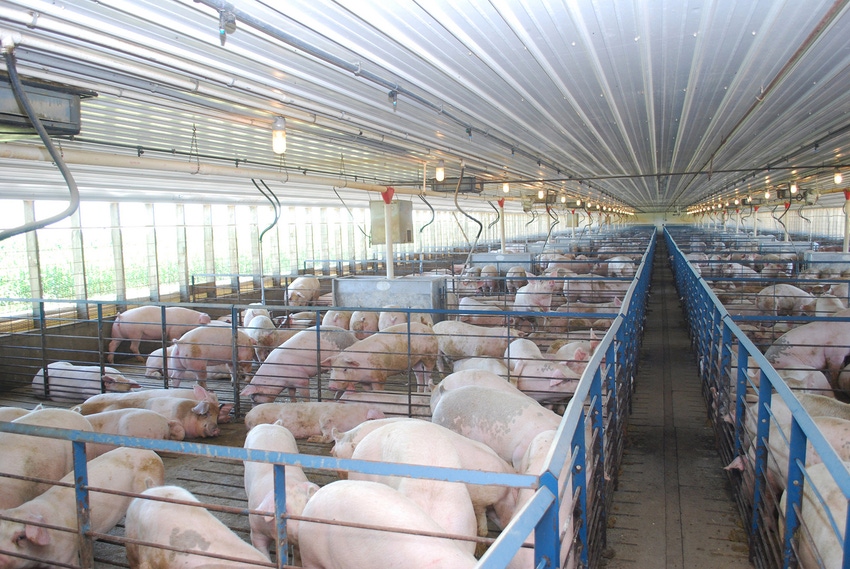National Pork Producers Council says Obama administration-issued GIPSA rules could restrict the buying and selling of livestock, lead to consolidation of the livestock industry and increase consumer prices for meat. NPPC vows to work for repeal.
December 14, 2016

In an apparent attack on rural America for its role in helping elect Donald Trump as president, the Obama administration today issued a regulation that could restrict the buying and selling of livestock, lead to consolidation of the livestock industry — putting farmers out of business — and increase consumer prices for meat. The National Pork Producers Council will work with the Trump administration and the new Congress to repeal the “unnecessary, destructive and illegitimate midnight rule.”
Written by the USDA’s Grain Inspection, Packers and Stockyards Administration, the “interim final” rule broadens the scope of the Packers and Stockyards Act of 1921 related to the use of “unfair, unjustly discriminatory or deceptive practices” and “undue or unreasonable preferences or advantages.” Specifically, the regulation would deem such actions per se violations of federal law even if they didn’t harm competition or cause competitive injury, prerequisites for winning PSA cases. (Such actions currently are state court matters.)
USDA Secretary Tom Vilsack says in a USDA press release: “For years, American farmers have been calling for protections against the most damaging unfair and deceptive practices confronting family farms across the country. … Poultry growers in particular are vulnerable to market risks and concentration in the processor market. All too often, processors and packers wield the power, and farmers carry the risk. Today, USDA is taking a big step toward providing the protections that farmers deserve and need.”
“I can’t imagine a more devastating regulation on an industry,” says NPPC CEO Neil Dierks. “The rule, which creates legal uncertainty, will destroy opportunities for many in the U.S. pork industry, with no positive effect on competition, the regulation’s supposed goal.”
USDA in 2010 proposed a number of PSA provisions — collectively known as the GIPSA Rule — which Congress mandated in the 2008 farm bill. But the agency was blocked by lawmakers through amendments to annual agricultural spending legislation from implementing a regulation that would eliminate the need to prove a competitive injury to win a PSA lawsuit. In fact, Congress considered and rejected such a “no competitive injury” provision during debate on the 2008 farm bill. Additionally, eight federal appeals courts have held that harm to competition must be proved for an action to be a violation of the PSA.
When a rider wasn’t included in the fiscal 2016 agricultural funding bill, Vilsack vowed his agency would move forward with the blocked regulation.
“The rule will be a boon to trial lawyers and a weapon activist groups will use to attack segments of the livestock industry,” Dierks says. “The inevitable costs of the regulation could lead to further vertical integration of the pork industry, driving packers to produce more of their own hogs. That will reduce innovation, quality and competition, with no benefit to consumers. Coupled with the current strong headwinds buffeting pork producers, the net effect of this destructive, unnecessary and illegitimate midnight rule would be a crushing blow to hog farmers of all sizes and to America’s rural economies.”
A recent update of a study conducted by Informa Economics of the proposed 2010 GIPSA Rule found that today it would cost the pork industry more than $420 million annually, with the majority of the costs related to PSA lawsuits brought under a “no competitive injury” provision.
“The bottom line,” Dierks says, “is that the White House picked trial lawyers and activists over farmers in forcing this regulation on rural America. We need to kill this illegitimate midnight rule.”
The PSA regulation — and two related proposed rules — will be subject to a 60-day public comment period, which extends the rulemaking process into the Trump administration. The NPPC, as it did following issuance of the proposed 2010 GIPSA Rule, will urge America’s 68,000 pork producers to submit comments in opposition to the new regulation. Thousands of producers weighed in against the 2010 rule.
Copies of the Farmer Fair Practices Rules (as transmitted to the Federal Register) can be viewed on the GIPSA website.
You May Also Like



